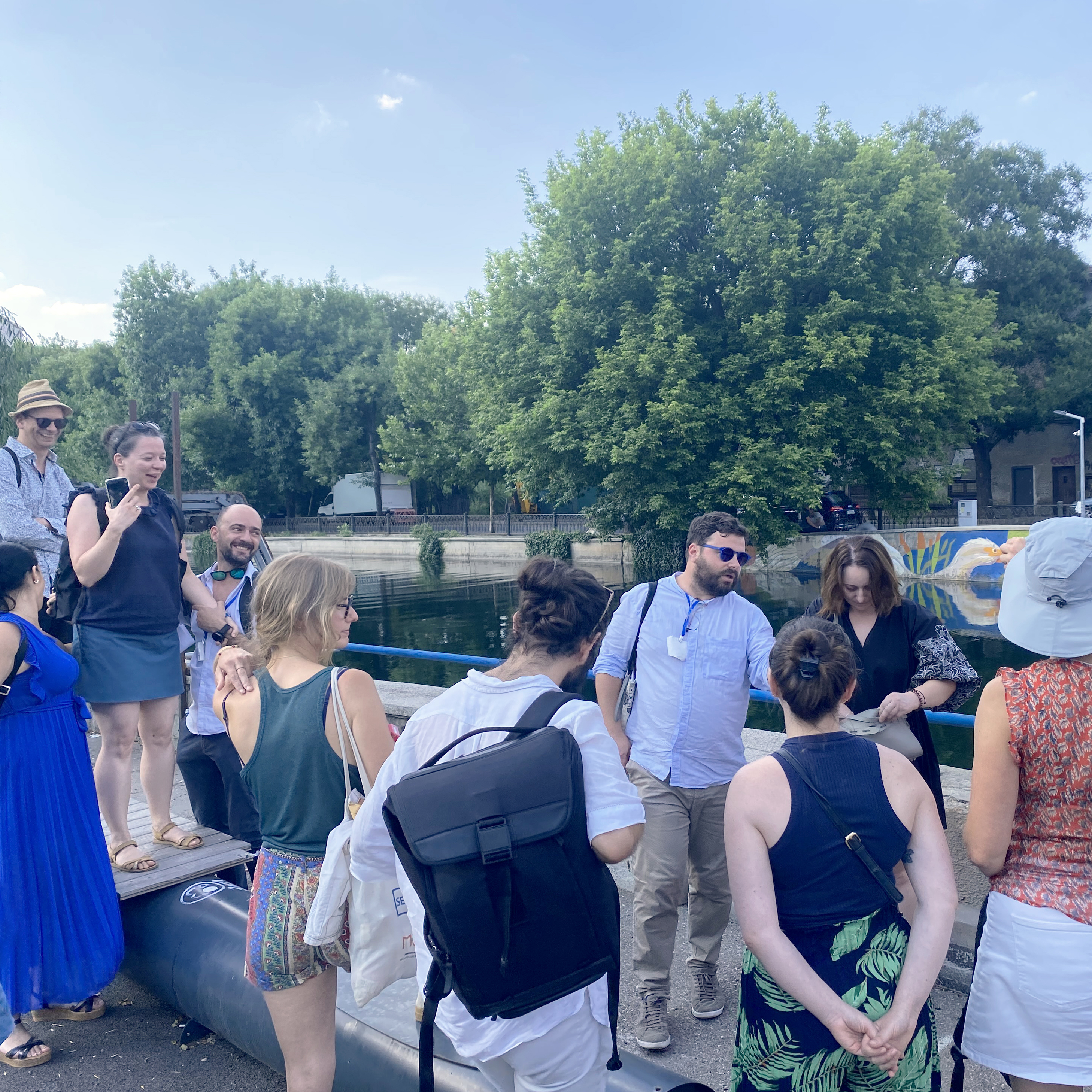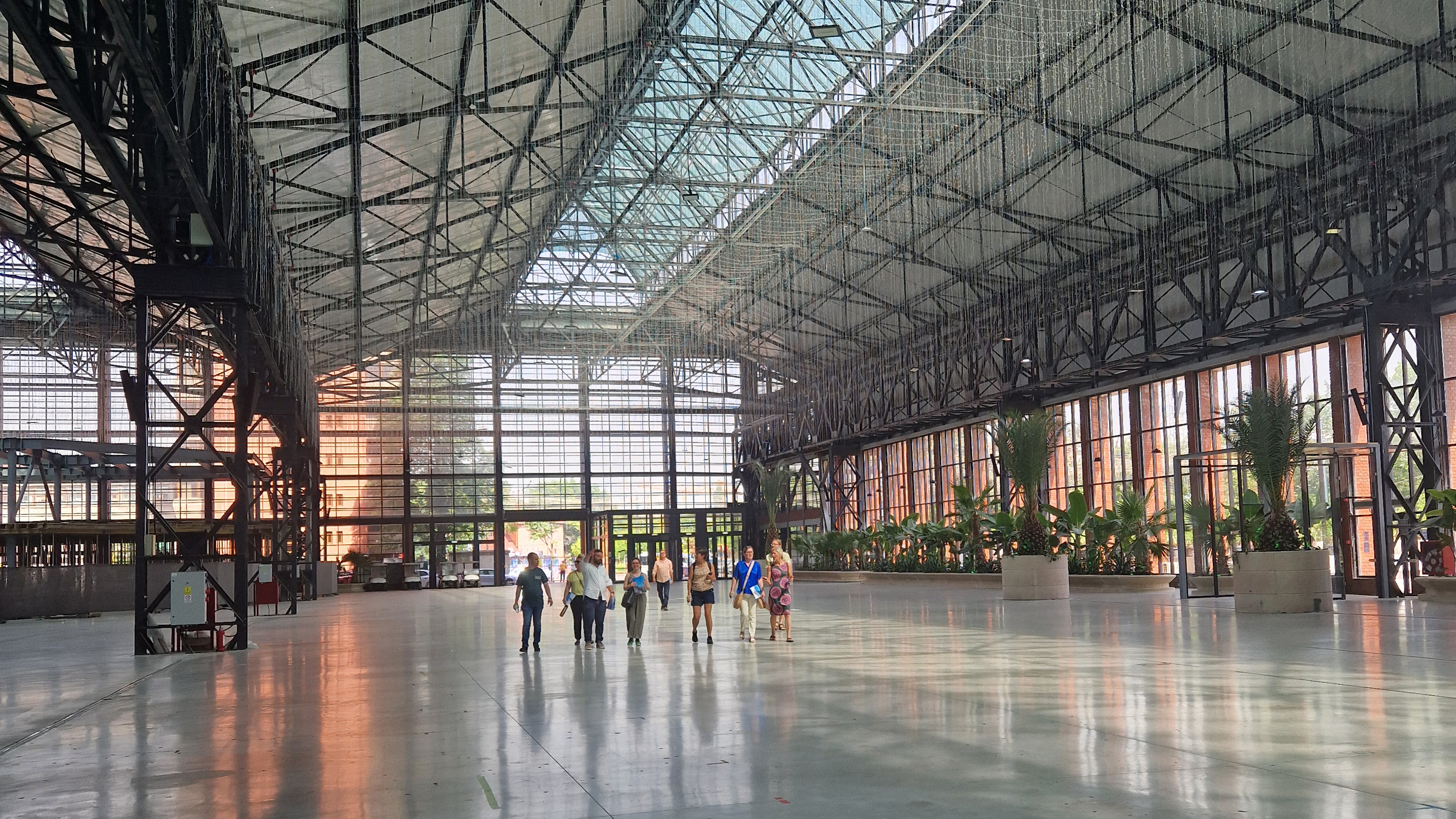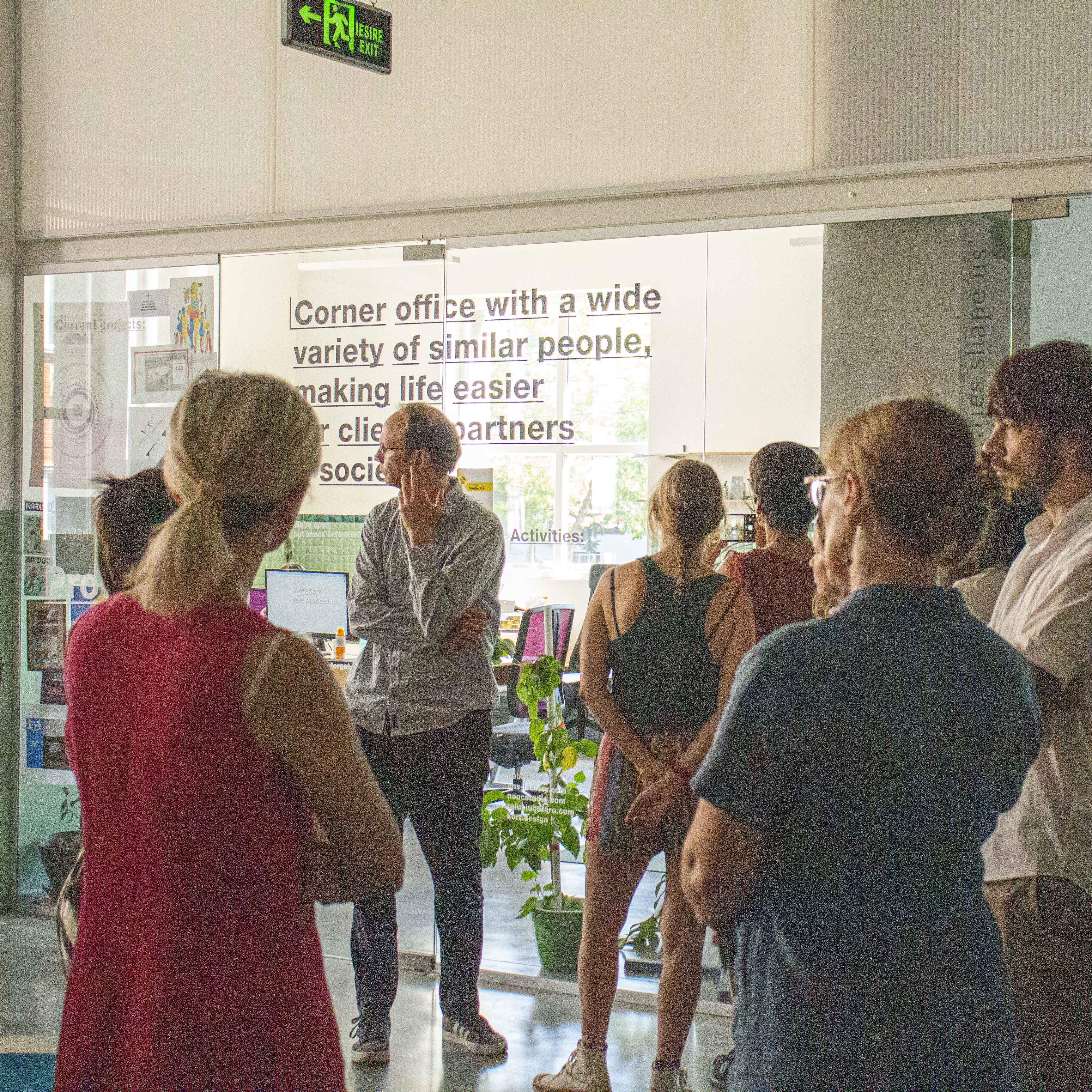Peer Review and Workshops on Circular Economy and Objective Setting
The first day started with a visit to the Victoria Tram Depot, a degraded and underused transportation infrastructure that also has an important historical significance in Bucharest. Participants were given an in-depth tour of the depot, and relevant context on this place’s rich past. Following the tour, participants engaged in a peer review session, which facilitated a vibrant exchange of ideas and experiences related to urban regeneration and circular economies.
The second half of the day was followed by a workshop at ArCuB, a main venue for showcasing and debating urban culture in Bucharest, where the focus shifted to exploring principles and good practices of circular economy, cities and governance. The session explored how urban areas can adopt circular economy practices to enhance sustainability. The participants shared local insights from various cities across Europe. At the end of the day, the group participated in an Urbact Method Workshop, with the network’s Lead Expert, Marcelline Bonneau. The focus of this workshop was on exploring methods for Objective Setting and Planning Actions, essential instruments for transitioning from nice idea to making it into a concrete and useful urban project.
Industrial heritage at the degraded and underused Victoria Depot, with an incredible potential to become a relevant, valuable place for the local community (image credits: Daniel Rădulescu, ADIZMB)
Urban Regeneration and Participatory Planning
The second day began with a visit to the Cotton Factory and Nod Makerspace, one of the city’s most successful examples for the conversion and urban regeneration of industrial infrastructure. This site exemplifies the incredible potential of bottom-up initiatives and creative communities, as drivers for urban regeneration. During a detailed Q&A session, participants learned about the intricate transformation process of the former factory and also its larger role in revitalizing the surrounding area, through Dâmbovița Delivery street festival.
Following this inspiring visit, the second half of the day was dedicated to a Workshop on Temporary Use of Vacant spaces, with Oliver Hasermann, Urbact Ad-hoc Expert. The workshop was focused on practical examples; it provided valuable and tangible insights into implementing circular economy principles in urban settings, throughout Europe.
The workshop was followed by a peer review session on the network’s recent Testing Actions. This session emphasized the importance of involving local communities in the development process, highlighting the need for participatory planning and collaborative decision-making.
At the end of the day, the group went on an exploratory walk, along the Dâmbovița River, to Văcărești Nature Park, also known as the Bucharest Delta. This visit reinforced the day's discussions on the role of green spaces in circular cities and emphasized the essential contribution that large, unspoiled natural spaces have on urban sustainability.

Group walk along the river, towards Văcărești Natural Park (image credits: Andreea Voineag, ADIZMB)
Study Visit and Policy Discussions
The study visit, on June 20th, took participants to Hala Laminor, a publicly funded urban regeneration project in Bucharest. Once the largest industrial halls in Romania, it has now been transformed into a multifunctional venue, showcasing the potential of industrial heritage for place-making and meaningful contribution to contemporary urban development. This site visit provided a real-world example of how local authorities can tackle the urban regeneration of very large industrial infrastructure.
In the afternoon, the visit continued at the City Hall, in which members in the URBACT Local Group gave insightful presentations on:
(1) The need for adaptive policies that can leverage in-between and temporary uses for revitalizing derelict urban spaces and fostering sustainable urban development (by Matei Smădu, Interreg Europe’s IMPETUS Project);
(2) Participatory instruments for involving local stakeholders in the planning process, with a focus on Victoria Depot and Bucureștii Noi Neighborhood (by Vera Marin, Urboteca Fellowship).
The subsequent Q&A session with City Hall personnel and the local stakeholders, provided practical insights into the challenges and opportunities of urban regeneration, particularly in the context of Bucharest's ongoing development projects.
The day ended with a visit at The Ark, a privately funded urban regeneration project that transformed the abandoned Customs & Commodities Exchange building into a multifunctional creative industries hub.

Study visit at Hala Laminor, one of the largest industrial halls in the country, recently converted into a publicly owned multifunctional venue (image credits: Cristina Pavelescu, ADIZMB)
A Milestone in the ”Greenplace” URBACT Network
The 4th Core Network Meeting of ”Greenplace” has provided a useful exchange of experiences, best practices and innovative ideas for restoring our cities’ “forgotten” urban areas into relevant and valuable places for local communities. Moreover, it underscored the importance of circular economies, adaptive policies, and participatory planning tools in developing sustainable and inclusive urban environments.
This meeting reinforced the project partners’ commitment and also set the stage for continued collaboration and innovation within the network, paving the way for future initiatives that will hopefully integrate circular economy principles into urban planning and development across Europe.

Group visit at Nod Makerspace, a creative industries powerhouse, in the former Cotton Factory (image credits: Daniel Rădulescu, ADIZMB)
Article written by Iulian Canov, September 2024, Bucharest


